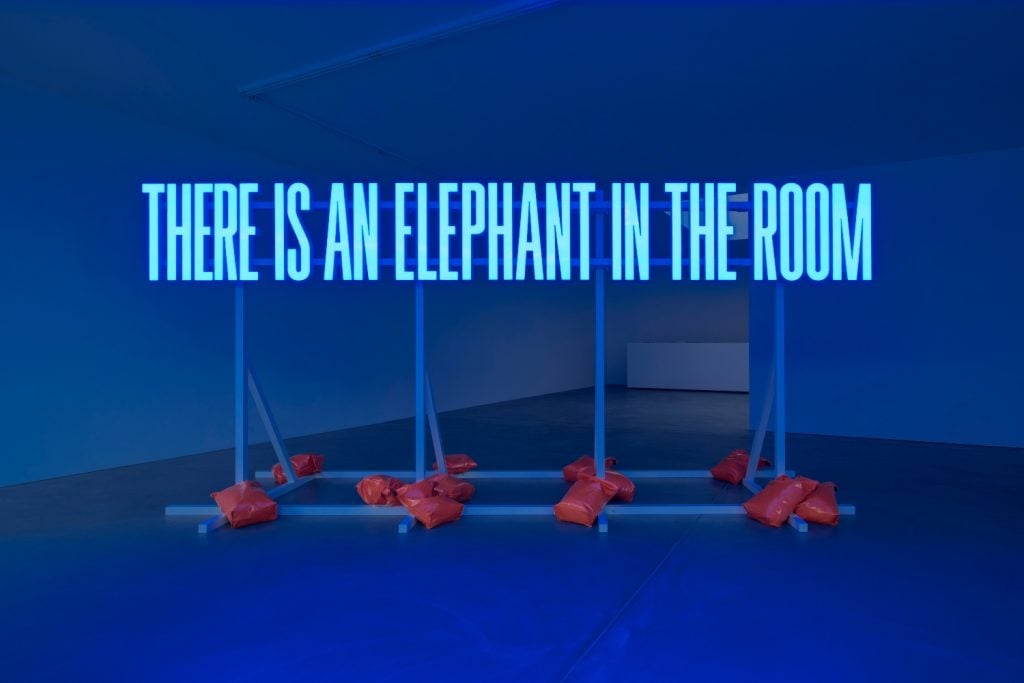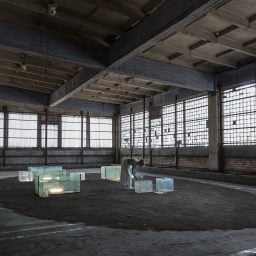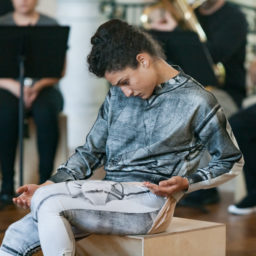The Riga International Biennial of Contemporary Art in Riga, Latvia, is returning this summer for its third edition, RIBOCA3. The event, originally scheduled to take place last summer, was cancelled shortly after Russia’s invasion of Ukraine.
The initial program, “Exercises in Respect,” had been more or less prepared by German curator René Block, when war broke out on February 24. RIBOCA’s team swiftly redirected their organizational efforts towards the launch of Common Ground, a center for Ukrainian refugees to gather, socialize, and work. It offers a range of creative activities and children’s playrooms. Two months later, in April, they announced their decision to postpone that year’s event.
“We felt like the [original] concept was not relevant for the world that had changed,” the biennial’s Russian-born founder Agniya Mirgorodskaya told Artnet News about Block’s decision to produce an entirely new program. “He was very strong in his decision that there was no way we could proceed with it.”
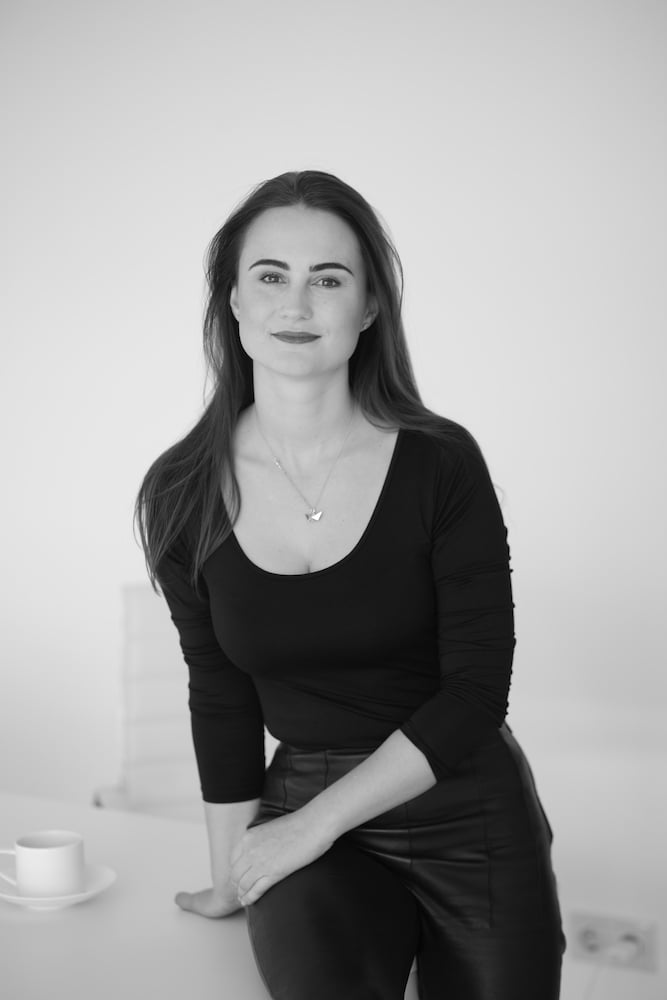
Agniya Mirgorodskaya, founder of the Riga Biennial Foundation and commissioner of RIBOCA. Photo courtesy Riga International Biennial of Contemporary.
The organizers may have also been concerned about the optics of the biennial’s financial backing coming from a Russian: Mirgorodskaya’s father, the fishing entrepreneur Gennady Mirgorodsky. Latvia shares a border with Russia and is also vulnerable to the whims of its aggressive foreign policy. Despite having a large Russian-speaking population, it has recently passed several new laws attempting to reduce its neighbor’s cultural influence.
“It was very clear from day one that we had to completely change our funding structure,” said Mirgorodskaya, adding that RIBOCA has not accepted any money from Russia since the war began. “Practically speaking, that is why we needed that extra year as well.” The founder turned to her husband, an American financier working in real estate, who agreed to donate a fixed percentage of his earnings towards a new endowment fund for the biennial. “It was his amazingly generous suggestion and a brilliant solution for us,” she said.
Block has devised a program in two parts. The first is in part an effort to exorcize last year’s discarded “Exercises in Respect” concept so that the biennial can begin with a clean slate. A magazine launched on May 11 will showcase all the artworks that had originally been prepared for RIBOCA3 in 2022.
This will be followed in June by the exhibition “Intermezzo” at the Kunsthal 44Møen in Denmark, where Block is a co-founder and artistic director. Of the 12 artists featured, a few had initially been slated to appear in last year’s event, including Riga native Evita Vasiljeva whose original installation of upside down concrete benches will reappear in a new site-specific form, which instead overturns pre-existing benches on the Danish island of Møn.
The second part, which shifts the focus back to Riga, comprises two concurrent exhibitions opening on August 10 with an undetermined end date. Block’s “Fragment” at the former Riga Technical University is dedicated to artists working with moving image and sound, including work by the seminal video artist Nam Jun Paik and French filmmaker Clement Cogitore.
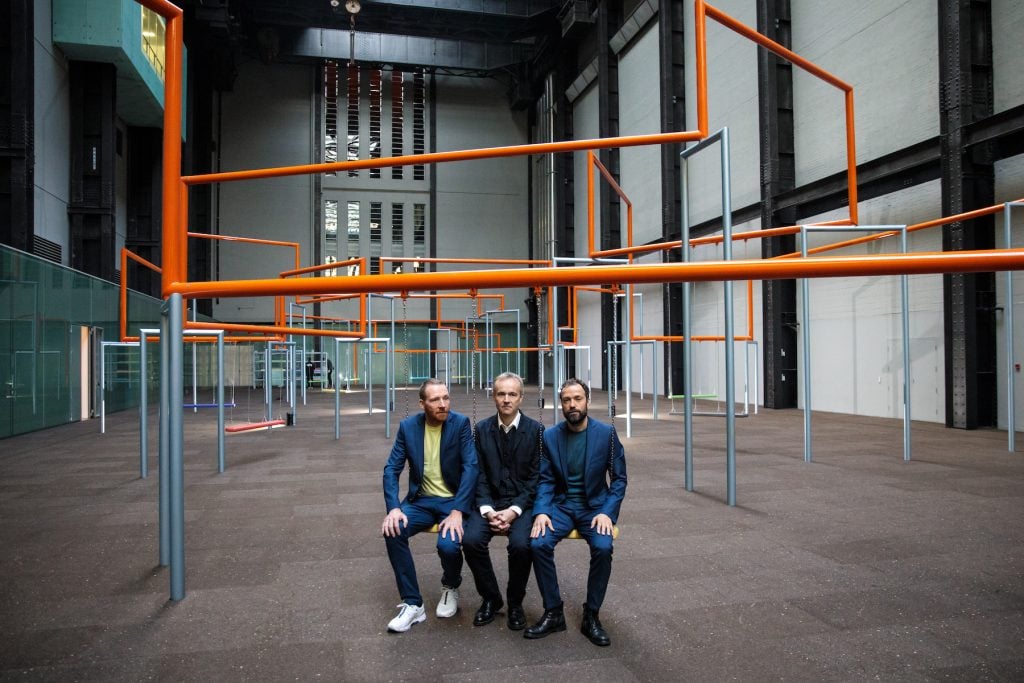
Members of the Danish collective Superflex [left to right] Jakob Fenger, Rasmus Nielsen and Bjornstjerne Christiansen pose in One Two Three Swing!, their Turbine Hall Installation at the Tate Modern on October 2, 2017 in London, England. Photo by Jack Taylor/Getty Images.
This year, Block will share his curatorial responsibilities with the socially minded collective SUPERFLEX, which was founded in 1993 and is known for large-scale participatory works. They have produced the biennial’s central ongoing project “There is an Elephant in the Room,” staged across multiple venues, which invites 25 women artists to address a topic that they believe to be urgent, taboo, or controversial such as the ongoing war on Ukraine.
Since it was founded in 2016, RIBOCA has become the premier showcase and destination for art from the Baltic region. It is broadening its ambition by inviting artists to remain in the city and collaborate for extended periods and by offering a rotating array of public works.
“This year, the biennial won’t just happen for a few months,” said executive director Inese Dabola, noting the city’s lack of a permanent contemporary art offering. “We are thinking about art as infrastructure, we want to be more rooted and contribute to the local arts scene as much as we can.”
